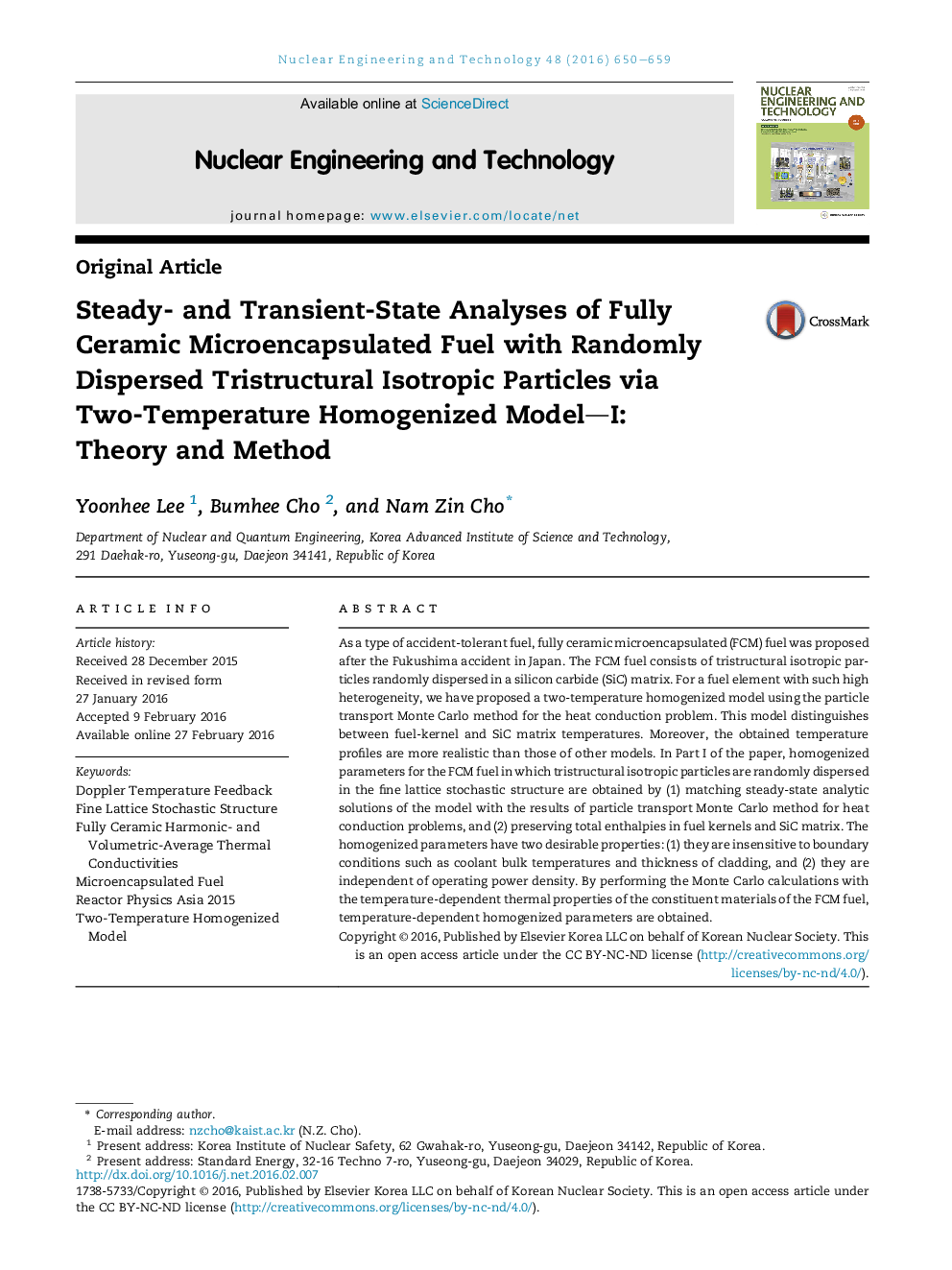| Article ID | Journal | Published Year | Pages | File Type |
|---|---|---|---|---|
| 1739856 | Nuclear Engineering and Technology | 2016 | 10 Pages |
As a type of accident-tolerant fuel, fully ceramic microencapsulated (FCM) fuel was proposed after the Fukushima accident in Japan. The FCM fuel consists of tristructural isotropic particles randomly dispersed in a silicon carbide (SiC) matrix. For a fuel element with such high heterogeneity, we have proposed a two-temperature homogenized model using the particle transport Monte Carlo method for the heat conduction problem. This model distinguishes between fuel-kernel and SiC matrix temperatures. Moreover, the obtained temperature profiles are more realistic than those of other models. In Part I of the paper, homogenized parameters for the FCM fuel in which tristructural isotropic particles are randomly dispersed in the fine lattice stochastic structure are obtained by (1) matching steady-state analytic solutions of the model with the results of particle transport Monte Carlo method for heat conduction problems, and (2) preserving total enthalpies in fuel kernels and SiC matrix. The homogenized parameters have two desirable properties: (1) they are insensitive to boundary conditions such as coolant bulk temperatures and thickness of cladding, and (2) they are independent of operating power density. By performing the Monte Carlo calculations with the temperature-dependent thermal properties of the constituent materials of the FCM fuel, temperature-dependent homogenized parameters are obtained.
